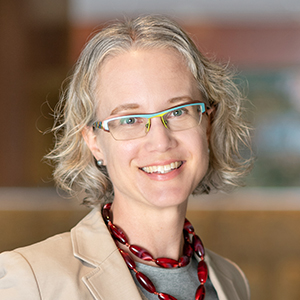Like most Americans, I raised my eyebrows more than a few times over the last year while shopping for groceries, ordering from restaurants, or restocking my family’s medicine chest. Price inflation was last a topic of household conversation when I was a child, but it has returned as an important issue in the pandemic recovery.
The Institute’s mission is to support the Fed in its pursuit of full employment through our research into ways to enhance opportunity and inclusion in the U.S. economy. To do this, we constantly seek new detail on how the full range of U.S. households are faring. This spring, that search has led us to explore the ways inflation puts different pressures on workers and families depending on where they live, what they earn, and how they spend. We devoted a virtual Institute event to understanding the varied impacts of inflation and discussing how policymakers might respond.
The Institute is built on the idea that we need to know more and share more—through efforts like our spring event—to expand participation in our economy and access to its benefits. This premise has caused some to ask whether efforts like ours “distract” the Fed from fighting inflation.
I frankly think that’s the wrong question. It supposes that having a narrower sense of context and trade-offs could somehow lead to better decisions.
The U.S. economy is always evolving, sometimes slowly and sometimes very quickly. The result is that our economy now looks very different from earlier, formative periods like the late 1970s. For example, in 1980, the ratio of household income for those just inside the top 20 percent to those just inside the bottom 20 percent was about 4 to 1. On the eve of the pandemic, this was about 5 to 1. The risk of a lasting earnings cut at some point in one’s career has risen, and it has become harder to move from one employer to another. Despite these challenging trends, opportunity has in other ways expanded. The likelihood of staying with an employer for a long time (20 years or more) has steadily increased for women. Meanwhile, Black well-being broadly measured has advanced relative to that for Whites, despite a tide of rising income inequality more generally and persistent wealth and earnings gaps. Furthermore, efforts to address inequalities via social programs have provided opportunity that lasts a lifetime for some.
Rather than asking whether the Fed has the bandwidth to focus on inflation and broader opportunity, a better question is: What information do we want our decision-makers to have when they make choices that affect so many? Since its founding five years ago, the Institute has become a focal point for connecting with frontier research into how our economy does, or doesn’t, work for all Americans. As such, it is one effort—among others at the Fed—to provide as much context as possible. As our spring event on the different ways that American households experience inflation shows, this approach can complement a traditional concern like inflation and can even provide new motivation for combatting it.
Research does little good if it is not shared—with policymakers, with other researchers, and with business leaders, community activists, technical innovators—everyone who participates in the economy. We hope that For All provides a way for you, our readers, to connect with our research in an engaging way.
This article is featured in the Spring 2022 issue of For All, the magazine of the Opportunity & Inclusive Growth Institute
Abigail Wozniak is vice president and director of the Bank’s Opportunity & Inclusive Growth Institute.






